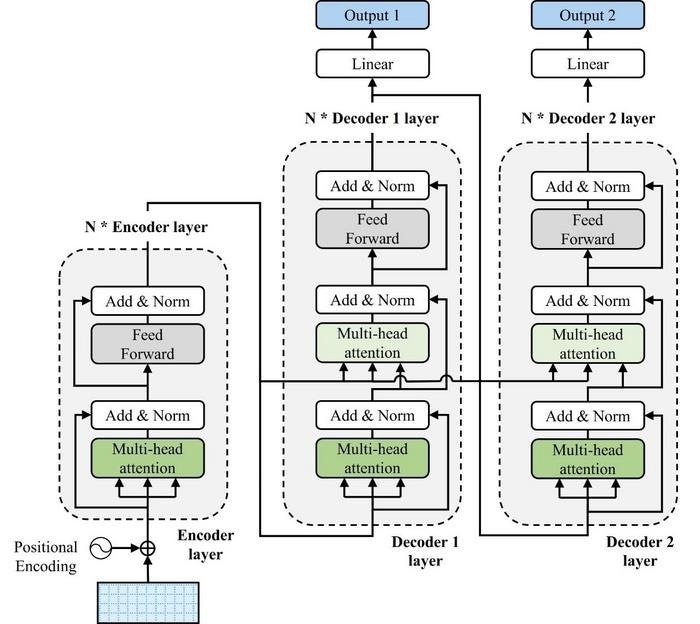Reviewed by Lexie CornerApr 2 2024
By increasing the precision and versatility of fault detection and diagnosis (FDD) in heating, ventilation, and air conditioning (HVAC) systems, a new study has made a substantial contribution to increasing the energy efficiency of buildings. This development has the potential to significantly impact energy-saving initiatives by offering increased system reliability and energy savings in building energy management.
 Modified transformer model with one encoder and two decoders. Image Credit: Zi-Cheng W. et al.
Modified transformer model with one encoder and two decoders. Image Credit: Zi-Cheng W. et al.
An essential part of a building’s energy consumption is the HVAC systems; however, they are prone to malfunctioning and reduced efficiency. Using traditional FDD models across various systems is difficult because they frequently have poor generalizability.
Researchers from Xi’an Jiaotong University present an innovative technique for FDD in HVAC systems in a study published in Energy Storage and Saving in February 2024. This study uses adapter-based transfer learning and a modified transformer model to improve the generalizability of FDD models across different HVAC systems.
The group improved a transformer model with two decoders and an encoder to identify several fault types and severities simultaneously. Together with this innovation, an adapter-based transfer learning approach makes it possible for the model to effectively adapt to different HVAC systems, even in the absence of a lot of data.
When compared to the widely used fine-tuning approach, the efficacy of the suggested HVAC FDD transfer learning framework is demonstrated through two carefully crafted transfer learning scenarios.
By including an effective transfer learning approach, the model can be effortlessly transferred from one comprehensive dataset to another with less data. This strategy considerably increases the model’s adaptability, allowing it to be used in various applications without requiring considerable retraining or data collection.
Leveraging the power of transformer and adapter-based transfer learning, this study not only propels us closer to achieving energy savings in buildings, but also enhances the safe and reliability of HVAC operations.
Dong Li, Researcher, School of Energy and Power Engineering, Xi’an Jiaotong University
This study marks a significant advancement in HVAC system maintenance, as it proposes a highly adaptable detection technology that assures systems run optimally with reduced energy consumption. It provides a scalable solution that can be used for various HVAC systems, providing widespread advantages in terms of energy savings and reliability.
Journal Reference:
Wang, Z.-C., et al. (2024) A modified transformer and adapter-based transfer learning for fault detection and diagnosis in HVAC systems. Energy Storage and Saving. doi:10.1016/j.enss.2024.02.004